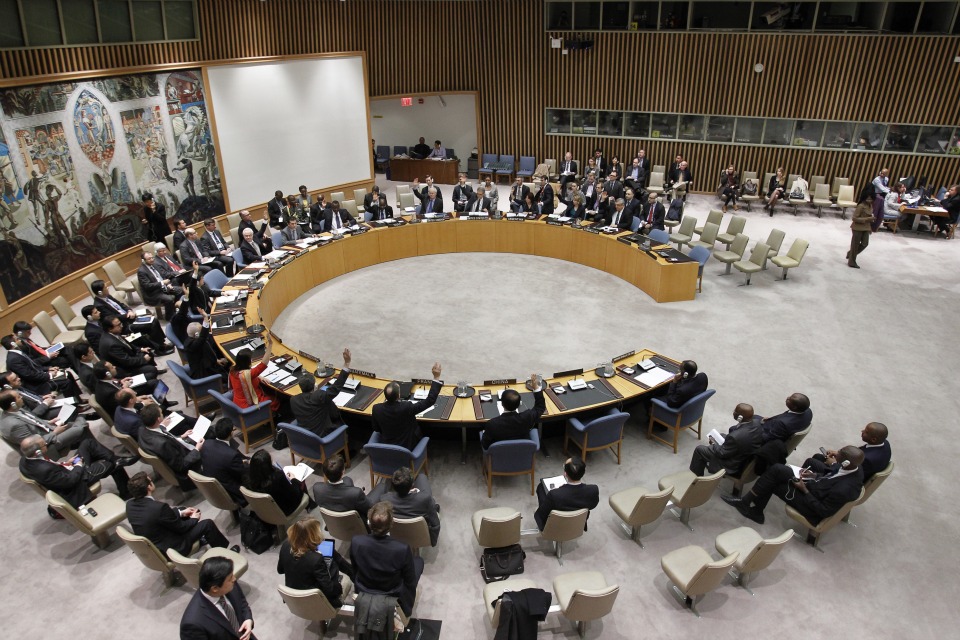"The UK is firmly behind a strong UN presence in Afghanistan"
UK statement by Deputy Permanent Representative Peter Wilson to the UN Security Council open debate on Afghanistan

Thank you, Mr President.
I would like to thank the Secretary-General for his report and to thank Special Representative Kubis for his briefing. Ambassador Tanin, thank you also for your remarks.
First I want to express our sadness and join in others in expressing it. Today’s crash in Southern Afghanistan, in which six US soldiers for ISAF were killed. I pay tribute to the work of ISAF Service Personnel and their tireless efforts to build peace in Afghanistan.
Mr President,
I will focus my statement today on five key areas: security; peace process and the region; elections; the Tokyo Mutual Accountability Framework; and the United Nation’s future engagement in Afghanistan.
First, the security landscape.
The determination and dedication of ISAF and the Afghan National Security Forces have allowed the Government of Afghanistan to build the foundations of a stable and democratic country.
The Afghan National Security Forces have proved themselves this fighting season, their first in the lead, but the gains they have made are fragile, and the insurgency remains resilient. The support of NATO and the international community will be vital to ensuring long-term security in Afghanistan.
We welcome the Loya Jirga’s decision last month to endorse the Bilateral Security Agreement. We hope it will now be signed without further delay.
NATO will only be able to plan properly for a long term, sustainable and balanced relationship once the Bilateral Security Agreement between the US and the Government of Afghanistan is in place, as Australia said before us.
Secondly, work towards a stable and prosperous region.
A political settlement remains the best way to secure a sustainable peace in Afghanistan. We welcome the recent dialogue between the leaders of Afghanistan and Pakistan, which have delivered tangible results. The United Kingdom is a strong supporter of this vital relationship.
Afghanistan’s other closest neighbours will also be central to the effort. We welcome the support of those countries engaged in the Heart of Asia Process and other initiatives to promote trade, economic prosperity and security.
Third, preparations for elections.
Mr President, Afghanistan is entering the final phase of preparations for the Presidential and Provincial Council elections. These elections are just four months away. Technical preparations are proceeding well, and the new legal framework is being implemented. Over a third of those taking part in voter registration so far were women. That is good news.
Alongside support to the UNDP’s ELECT 2 programme, in recent months, the United Kingdom has pledged a further $11 million to build the capacity of the women elected to Provincial Councils next year, to ensure that their voices are heard in the democratic process.
The United Kingdom encourages the Government of Afghanistan to give election observers the access they need to the electoral process, so that when the time comes, they can report credibly to the Afghan people on how inclusively this election has been conducted.
Fourth, our challenge to deliver on the commitments we made at the Tokyo Conference in 2012.
Mr President, the Tokyo Mutual Accountability Framework remains the blueprint for the international community’s development efforts in Afghanistan. The priorities for the Government of Afghanistan next year are: to maintain economic stability; deliver credible and transparent elections; to consolidate the gains made in human rights, particularly women’s rights, as our colleague from Luxembourg underlined just earlier.
The Joint Coordinating and Monitoring Board scheduled for January 2014 will provide an important opportunity for the international community and the Government of Afghanistan to review progress to date, set post election priorities and plan for the Ministerial Development Conference later in the year. The United Kingdom looks forward to co-chairing that conference.
Finally, Mr President, the future of the UN in Afghanistan.
The United Kingdom is firmly behind a strong UN presence in Afghanistan. The UN will have an essential role, next year, working with the Government of Afghanistan to lock-in the gains made by the international community over the last decade.
To deliver this objective, this Council will need to deliver a mandate next March that gives the Special Representative and his team a clear steer on what we see as their priorities for 2014 and beyond and the tools to execute effectively.
We agree with the priorities identified in the Secretary-General’s Quarterly Report. We also agree that a country-wide presence is essential for the UN to carry out its responsibilities. But to do this effectively, the UN must have the resources it needs as well as the backing of the host Government. We also want to see the UN country team step up its activities, particularly on the Rule of Law.
So Mr President, in conclusion;
2014 will likely be a challenging year. We pledge to continue our support to the Government of Afghanistan as it seeks to build a more peaceful, democratic and prosperous future for all Afghans. That is in our common interest.